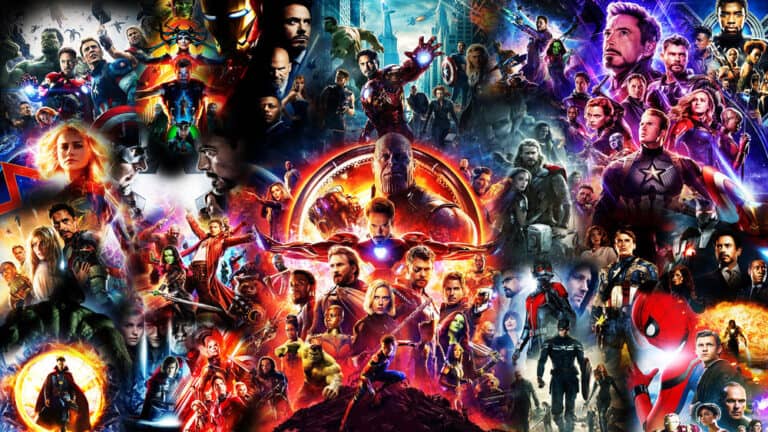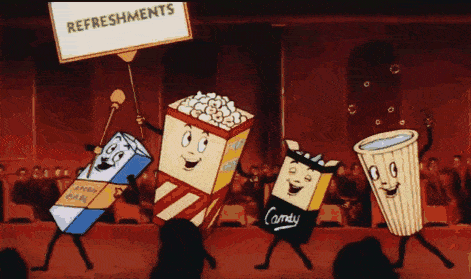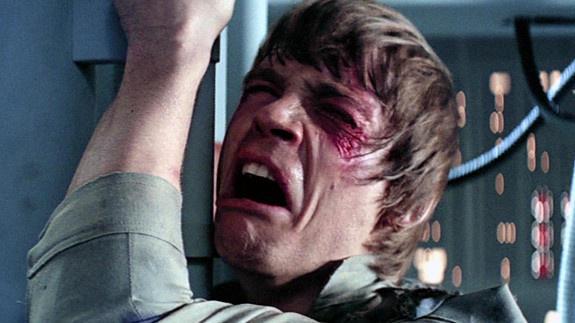Modern movies have come a long way since the golden age of cinema, but it’s hard not to feel like something is missing. While technological advancements have allowed filmmakers to create stunning visuals and intricate worlds, the creativity and soul of the medium have been lost. The current Hollywood landscape is dominated by comic book adaptations, sequels, and remakes, leaving audiences feeling unfulfilled and underwhelmed. This blog will explore why modern movies are often disappointing and why we keep watching them anyway.
One of the main reasons modern movies fail to live up to expectations is the focus on franchise building. Hollywood studios have become obsessed with creating shared universes and profitable franchises, resulting in a steady revenue stream. The problem with this approach is that it prioritizes box office success over artistic merit, often leading to bland, formulaic films. It’s no secret that sequels and franchise films are more profitable than original works. Still, this approach stifles creativity and reduces the art of filmmaking to a business model.
Take the “Star Wars” franchise, for example. The original trilogy, released in the late 1970s and early 1980s, was a game-changer that defined the space opera genre. However, while visually impressive, the subsequent sequels and spin-offs failed to capture the original’s magic. The prequel trilogy, released in the late 1990s and early 2000s, was met with mixed reviews. The more recent sequels, such as “The Force Awakens” and “The Last Jedi,” were criticized for their lack of originality and reliance on nostalgia. Despite this, the franchise continues to be a box office juggernaut, proving that audiences are willing to keep watching even when the quality of the films is lacking.
Another reason modern movies disappoint is the reliance on special effects and CGI. While technology has allowed filmmakers to create incredible visuals and worlds, it’s also created a dependency on computer-generated images. The overuse of CGI has resulted in a lack of tactile, tangible elements in films, making the experience less immersive and impactful. CGI is a tool that should be used to enhance a film, not replace the core elements that make it great. Take the film “Jaws,” for example. The original film, released in 1975, was a groundbreaking thriller that relied on practical effects, such as a mechanical shark, to create a sense of terror. The film was a critical and commercial success and is widely regarded as one of the greatest films of all time.

In contrast, modern films like “Pirates of the Caribbean” rely heavily on CGI. They are criticized for their lack of real-world elements and over-the-top spectacle. The result is a hollow experience that fails to engage audiences in the same way as “Jaws” did. Another factor contributing to the disappointment of modern movies is the remaking of classic films. While remakes can be a chance to bring a beloved story to a new generation, they often fall short of the original. This is because remakes are often driven by nostalgia and a desire to cash in on the original’s success rather than a passion for the story. The result is a sanitized, watered-down version of the original that fails to capture the magic that made the original so special.
Another trend in modern movies that contributes to disappointment is adapting popular books into films. The book “Fight Club” was a provocative and thought-provoking work that explored the themes of consumerism and masculinity. The film adaptation, released in 1999, was a faithful and powerful interpretation of the book that captured the essence of its themes and characters. In contrast, modern films that are adaptations often fail to live up to their source material. They often lack the depth and nuance of the original work, resorting to shallow, generic interpretations that fail to connect with audiences. This is a common problem with book adaptations, as filmmakers struggle to translate the complexities of the source material into a visual medium.
Another trend in modern movies that contributes to disappointment is the overuse of established brands and intellectual property. Hollywood has become obsessed with adapting everything from comic books to board games, resulting in many films lacking originality. The problem with this approach is that it prioritizes brand recognition over creativity, leading to films that are safe, formulaic, and lacking in imagination. While these films may be financially successful, they often fail to connect with audiences meaningfully. Take the film “Snatch,” for example. The original film, released in 2000, was a quirky, off-beat crime comedy that stood out from the crowd. The film was praised for its originality and fresh approach to the genre. In contrast, modern films like “21 Jump Street” rely on established brands and intellectual property, resulting in a bland, formulaic experience. These films lack the wit and originality of “Snatch” and fail to capture the hearts and minds of audiences.
Despite all of these shortcomings, we keep watching modern movies anyway. The reason is simple: we love the escape that movies provide. Whether it’s a fantasy world filled with magic and adventure, or a dramatic tale of love and loss, movies provide a respite from the real world. They allow us to experience new and exciting stories, worlds, and characters. Even though many modern movies fail to live up to expectations, we keep watching them because we’re drawn to the promise of a great story.
In conclusion, modern movies are often disappointing because of the focus on franchise building, the overuse of special effects and CGI, the trend of remaking classic films, and the reliance on established brands and intellectual property. Despite these shortcomings, we keep watching movies because of the escape they provide. While it’s easy to be critical of modern movies, it’s important to remember that they reflect the times in which they are made. The best we can do is continue to support original, creative works that push the boundaries of the medium and provide audiences with a truly memorable experience.

12 February 2023 Why Modern Movies are a Bunch of Disappointments (And Why We Keep Watching Them Anyway)
12 February 2023 Uncovering the Mystery: The Possibility of Tim and Lex being John Hammond’s Clones
12 February 2023 The Fuzzy Memories of Obi-Wan Kenobi: A Jedi’s Journey with Dementia
12 February 2023 The Endless Wait: Red Dead Redemption 3 and Fallout 5’s Journey to Release in the 2030s
11 February 2023 Padame Did Not Die of a Broken Heart
11 February 2023 Could Don Draper be the infamous D.B. Cooper?
11 February 2023 The Goku Coma Theory – Was it all Just a Dream?
10 February 2023 Did ‘The Flintstones’ Actually Take Place In A Post-Apocalyptic Hellscape?
10 February 2023 101 Dalmatians (1961) – Was Anita in on the Puppy Heist?
03 February 2023 Here Are The Most Anticipated Games Coming 2023 So Far


